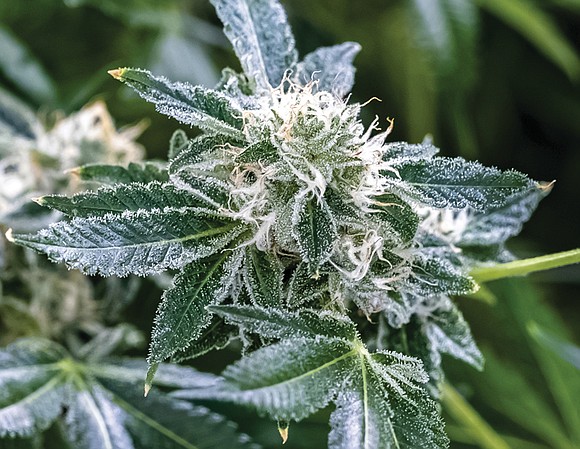New weed-sales bill would include minority vendors
Jeremy M. Lazarus | 1/25/2024, 6 p.m.
Prospects for the General Assembly to approve the retail sale of marijuana could get a big boost from a deal to guarantee Virginians of color gain a significant share of the business opportunity.
Unveiled Jan. 18 at a State Capitol press conference, the agreement is between state lawmakers, advocates and the state’s four medical marijuana companies.
It aims to ensure there is a major equity component.
The deal to create sales of recreational marijuana is incorporated into a bill that Alexandria state Sen. Adam P. Ebbin and Fairfax Del. Paul E. Krizek have introduced. That legislation soon will be heard in Senate and House committees.
The goal, according to Attorney Phillip Thompson of East Coast Cannabis, who helped craft the agreement, is to make sure there are business opportunities for minority entrepreneurs and communities hard hit by enforcement of marijuana laws. It also would prevent a few large companies to dominate what could become a multi-billion dollar business.
This is “why people are supporting these bills, because we think this is the best opportunity to have significant minoriity participation in the cannabis business,”
Mr. Thompson told reporters. “We don’t want a situation where there are 60 licenses and 58 are awarded to non-minority businesses.”
He said this has happened in the past when other business opportunities arose in the state.
Mr. Thompson and other members of the Cannabis Equity Coalition of Virginia and East Coast Cannabis are less enthusiastic about a separate bill that Virginia Beach state Sen. Adam Rouse has introduced to start retail sales.
While Sen. Rouse calls his bill a model of equity, Mr. Thompson and others say it does not include the kind of robust provisions they want and have included in their agreement with the other lawmakers.
Richmond state Sen. Lamont Bagby, chair of the Virginia Legislative Black Caucus, said he expects that ultimately the legislation will be merged to ensure united support.
Gov. Glenn Youngkin has stated he is opposed to the establishment of retail marijuana operations, and he is armed with a veto pen that he could use to block such legislation if were to pass.
Under the agreement incorporated into the Ebbin-Krizek legislation, the four companies that now can only sell to adults with a prescription would be allowed to begin retail sales to adults on July 1 on the condition that each company agrees to train and mentor six minority entrepreneurs in the cultivation of saleable marijuana and the retail operation. The agreement also would require the companies to pay $1 million apiece to gain the faster start and agree to a 12% sales tax on retail sales.
By January 2025, the agreement calls for 60 micro-businesses with majority Black or other minority ownership to be licensed to begin cultivation and sales. Also, five industrial hemp processors also could start retail sales in localities where voters do not pass a referendum to prohibit such operations.
In addition, the agreement calls for the micro-businesses to be eligible for low-interest loans and waivers on licensing fees and other local requirements for commercial operations.
Lastly, the deal calls for the tax revenue generated by the sale of marijuana to be heavily weighted to benefit communities hit hardest by enforcement of Virginia marijuana laws before the possession of small amounts was legalized in 2021.
The goal would be to have all of the state tax revenue the four medical marijuana companies generate between July 2024 to January 2025 to be used to support development of minority-owned businesses and improvements in the communities hardest hit by enforcement, according to the agreement.
After January 2025, the goal would be for 30% of revenue from the marijuana sales tax to be earmarked for the Cannabis Equity Trust Fund, which the General Assembly previously established as a vehicle to invest in areas that were previously law enforcement targets.
In addition, the agreement would require that half of the local share of revenue from the tax on retail sales be devoted to the renovation or construction of public schools.







